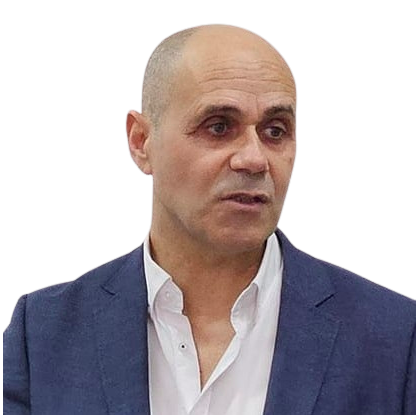
AI in Health Care Strategies
Álvaro Rocha, ISEG, University of Lisbon, Portugal
Abstract: Artificial Intelligence (AI) is fundamentally reshaping healthcare, promising unprecedented advancements in medical diagnosis, treatment personalization, patient monitoring, and operational efficiencies. As healthcare systems globally face challenges such as aging populations, increasing chronic diseases, and resource limitations, AI emerges as a strategic tool to enhance care quality, reduce costs, and improve patient outcomes. This keynote explores the integration of AI into healthcare strategies, analyzing real-world applications, potential benefits, ethical considerations, and regulatory challenges. By examining case studies from clinical decision support systems, predictive analytics, telemedicine, and personalized medicine, we will highlight best practices and critical success factors for effective AI deployment. The session will also address practical considerations for healthcare leaders and policymakers, including data governance, patient privacy, and ethical frameworks necessary to build trust and ensure equitable healthcare outcomes.
CV: Álvaro Rocha is World's Top 1% Scientist by Stanford University (USA) and Elsevier, World's Top 0.05% Scientist by ScholarGPS, and World’s Top 1% Scientist by ResearchGate for the domains of Information Science, Information Systems and Business Informatics. He is a Professor of Information Systems at the University of Lisbon – ISEG and Honorary Professor at the Amity University, researcher at the ADVANCE (the ISEG Centre for Advanced Research in Management), and a collaborator researcher at the CINTESIS (Center for Research in Health Technologies and Information Systems). His main research interests are maturity models, management information systems, quality of information systems, intelligent information systems, cybersecurity, e-government, e-health, and information technology in education. He is also Vice-Chair of the IEEE Portugal Section Systems, Man, and Cybernetics Society Chapter, and Founder and Editor-in- Chief of two Scopus and SCIMago journals: JISEM - Journal of Information Systems Engineering & Management; and RISTI - Revista Ibérica de Sistemas e Tecnologias de Informação / Iberian Journal of Information Systems and Technologies. Additionally, he is the Scientific Manager of the Information Systems Engineering & Management book series at Springer-Nature, the world's leading publisher of publications in Science, Technology and Health. Moreover, he has served as Vice- Chair of Experts for the European Commission’s Horizon 2020 Program, and as an Expert at the COST - intergovernmental framework for European Cooperation in Science and Technology, at the European Commission’s Horizon Europe Program, at the Government of Italy’s Ministry of Universities and Research, at the Government of Latvia’s Ministry of Finance, at the Government of Mexico's National Council of Science and Technology, at the Government of Polish's National Science Centre, at the Government of Cyprus's Research and Innovation Foundation, and at the Government of Slovak's Research Agency.

LLMs as GNNs (to understand how they generalise)
Petar Veličković, Senior Staff Research Scientist Google DeepMind, Affiliated Lecturer at the University of Cambridge, and Associate of Clare Hall, Cambridge
Abstract:
Problems such as efficient (length) generalisation are highly relevant for building agentic systems,
yet they have puzzled LLM researchers for several years. However, they can sometimes be obvious through the lens of graph representation learning.
This is because LLMs are, by their design, vulnerable to generalisation issues from a variety of geometric perspectives.
In this talk, we will leverage this insight, and attempt to scale the mountain of LLM generalisation. 🏔️
CV: Petar Veličković is a Senior Staff Research Scientist at Google DeepMind, Affiliated Lecturer at the University of Cambridge, and an Associate of Clare Hall, Cambridge. He holds a PhD in Computer Science from the University of Cambridge (Trinity College), obtained under the supervision of Pietro Liò. His research concerns aligning neural networks to (classical) computation, to assess and improve their out-of-distribution generalisation ability. Particularly, he focuses on neural algorithmic reasoning (featured in VentureBeat), graph representation learning and categorical and geometric deep learning (a topic he has co-written a proto-book about). For his contributions, he is recognised as an ELLIS Scholar in the Geometric Deep Learning Program. He is the first author of Graph Attention Networks - a popular convolutional layer for graphs-and Deep Graph Infomax-a popular self-supervised learning pipeline for graphs (featured in ZDNet). His research has been used in substantially improving travel-time predictions in Google Maps (featured in Endgadget, VentureBeat, CNET, The Verge and ZDNet), guiding intuition of mathematicians towards new top-tier theorems and conjectures (featured in Nature, Science, Quanta Magazine, New Scientist, The Independent, Sky News, The Sunday Times, la Repubblica and The Conversation), the first full AI system for tactical suggestions in association football (featured in Financial Times, The Athletic, The Economist, New Scientist, Wired, MIT Technology Review, The Verge and El País), and the first AI-assisted top-percentile result in competitive programming.